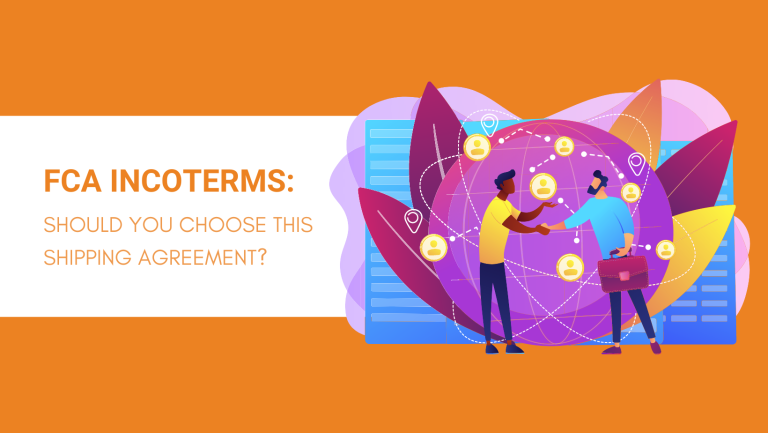International trade has been on the rise since its inception. As the world business grows, it directly impacts import and export activities all around the globe.
While the international shipping business is fairly understandable, it can be confusing to some importers regarding the clear trade terms. That is where the Incoterms play their part.
This article explains FCA Incoterms in detail. It will help you understand what it is, its salient features, obligations to both parties, and other important tips for successful transactions in an FCA contract.
Sit tight as we walk you through the ins and outs of this important shipping agreement.
Let’s start.
What Does FCA Stand for?
FCA stands for “Free Carrier”. It is the terminology used in the shipping industry and is recognized internationally.
What Are FCA Incoterms?
FCA Incoterms are the terms and conditions for the international trade agreement between the buyer and the seller.
Fast Fact: Incoterms is short for “international commercial terms”. These are the terms and conditions set by the international body of commerce known as the International Chamber of Commerce.
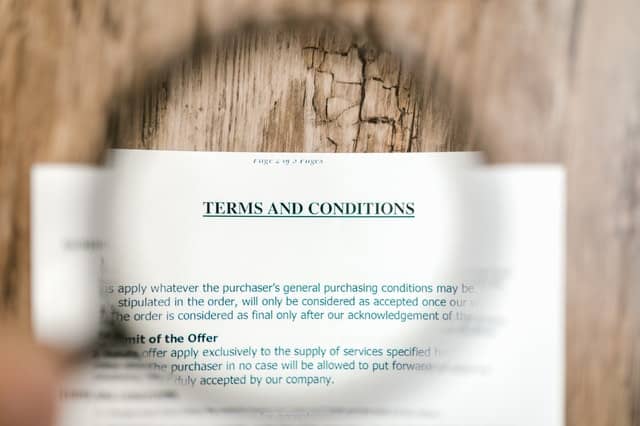
We will discuss these terms and conditions in detail but let’s first understand what does a free carrier means in shipping incoterms and why it is called a free carrier?
The Meaning of FCA in Shipping Incoterms
The FCA or the Free Carrier points out at the seller’s responsibility or obligation that he will deliver the goods to any carrier service, freight forwarder, or any other place that the buyer will nominate.
The named place of delivery can either be at the seller’s premises or any other destination such as a shipping port as decided by the buyer.
So, the seller will be responsible for delivering goods from his location to the decided place. From that place, the risks transfers from the seller, and the buyer assumes all the responsibilities from that point onwards.
The following section will further clarify the clear responsibilities of buyers and sellers who are in an FCA agreement.
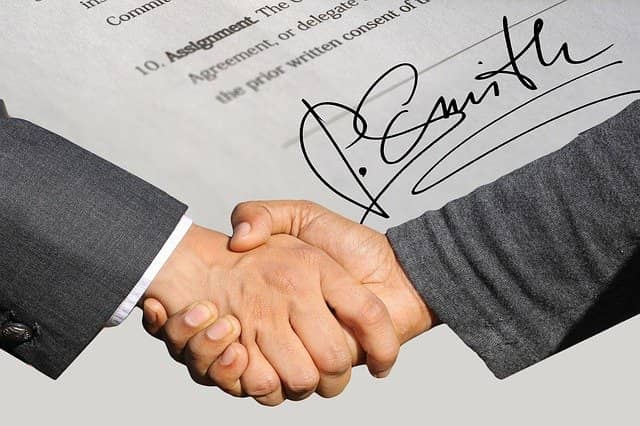
Seller Responsibilities in FCA Incoterms
The seller of goods or sometimes called an exporter has the following responsibilities or obligations under FCA Incoterms.
- Arranging and providing the goods as demanded by the buyer.
- Sharing the formal bill or commercial invoice for the business transaction.
- Proper documentation showing the details of the transaction.
- Packing the goods to make them ready for export.
- Marking the goods properly for export.
- Providing licenses and ensuring other formalities
- Responsible for export clearance.
- Arranging the pre-carriage to dispatch goods for the named place of delivery.
- Delivering goods to the named place.
- Bearing the charges of pre-shipment inspection at the port.
- Providing the delivery documents.
These were the responsibilities of the seller in the FCA agreement. Let’s understand the responsibilities of a buyer in an FCA contract.
Buyer Responsibilities in FCA Incoterms
The buyer will be responsible for doing the following actions in an FCA agreement.
- Paying for the items to the seller as per the sales invoice.
- Arranging the means to unload goods at the named place of delivery.
- Responsible for unloading goods at the place of delivery.
- Arranging and paying for the means of shipping for exporting goods, also known as the main carriage.
- Customs clearance and other formalities at the destination port.
- Paying for the import custom taxes, etc.
- Unloading at the port of the destination country.
- Responsible for loading and carrying goods from the port to the final destination.
How Does FCA Agreement Work?
As you have noticed from the responsibilities of both parties, an FCA agreement puts the major workload onto the buyer as compared to the other trade Incoterms such as DDP and DAP Incoterms.
It is just like the seller is done with his job just after handing over the goods to the buyer within his own country.
He is not responsible for performing the remaining tasks that are done in regular export business such as arranging for the main carriage and helping with import clearance, etc.
Let’s understand the FCA agreement with a very simple and typical FCA transaction.
Suppose you are sourcing products from China and want to ship them to the United States.
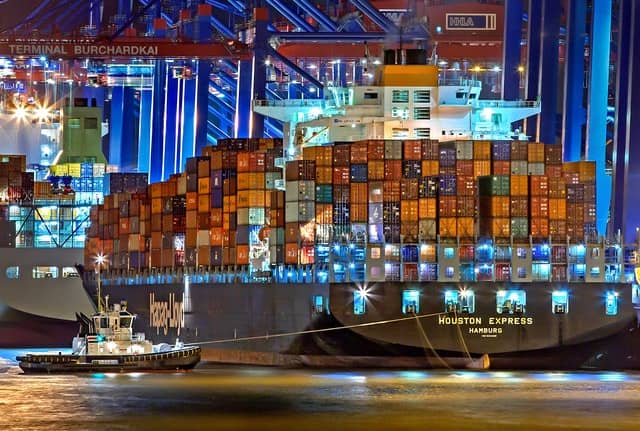
Let’s say that you want to buy a container of clothes from a Chinese seller and you sign the FCA agreement with him.
The typical process of this FCA agreement goes like this.
The seller will ask you about the place of delivery where he will have to make the container available to be picked up by the buyer. Let’s say that you tell the seller to deliver the container at a point that is near the port of Guangzhou, China.
The seller will most probably have the clothes in his warehouse and will just have to arrange the means of transport to deliver the container at the named place of delivery within the agreed timeline.
The seller may transport the goods by road or rail to that place where he will hand over the products, documents, and customs formalities to you or your nominated person.
From that point onwards, the showtime starts for you. As a buyer, you will be the one who would arrange everything from there until that container reaches your warehouse.
Delivery Options in FCA
The seller is responsible for delivering the goods to the named place of delivery. The named place of delivery is to be decided by the buyer.
It can either be the seller’s warehouse, or the terminal or freight forwarding company’s site. In most cases, there are two options for deciding the named place of delivery.
- Delivery at the seller’s premises or his warehouse.
- Delivery at any other place within the seller’s country.
Risks Involved in FCA Incoterms
In international trade practices, dispatching and receiving goods safely is of utmost importance. So, are there any risks involved in FCA agreements?
Risks are always there in any kind of trade agreement. The one responsible for the loss or damage of goods can be the area of conflict between both parties. That’s why the Incoterms are there.
In an FCA contract, the general point of view is that the buyer is at most risk of being responsible for the most actions or duties. Following are the risk factors for the buyers and sellers in FCA Incoterms.
Risks for the Seller in FCA
As you can see from the list of responsibilities discussed earlier in this article, the seller just provides what he already has in his possession. He just has to take the hassle of transporting goods to the decided place of delivery.
After that, the goods and their safety are the buyer’s headache. Nevertheless, there are some risks that a seller has to face in an FCA agreement. Please see below.
- The chance of goods being damaged during the loading at the seller’s facility.

- The risk of losses or damages during transporting goods to the named place for delivery.
- Export delay due to incomplete documentation related to customs formalities for export.
The seller has to face additional fatigue and costs if any of the above-mentioned mishaps occur.
Risks for the Buyer in FCA Contract
As discussed earlier, the buyer has to face a higher risk to complete the process of FCA. He may have to face the following challenges or risks in this type of agreement.
- Costs and hassle of unloading the goods at the named place of delivery.
- Additional transportation costs if the named place of delivery is not the port.
- Custom delays due to reasons that are not obligated to the seller. In this case, the delays in export will impact the buyer directly.
- Losses and damages after receiving goods from the seller at the place of delivery.
- Bearing import duties and delays at the destination country.
- The costs and hassle of unloading at the port of the destination country.
- Additional costs and risk of damages for transporting goods from port to the final destination.
Pros of FCA Incoterms for the Buyer
There are always pros and cons to every business deal. Despite the risk factors for the buyer that we discussed in this article, the buyer has the following benefits in the FCA agreement.
- Liberty to choose the place of delivery where he can receive products.
- More control over the processes means more savings on the shipping deals.
- Expediting the shipping process is in the buyer’s hands.
- Option to use his setup of local transportation and receive goods right from the seller’s warehouse.
- Make use of personal expertise at the customs for getting goods cleared for imports instead of relying on the seller.
- Freedom to choose a personal transportation and unloading network rather than being dependent on the seller’s network.
Cons of FCA Incoterms for the Buyer
Following are the cons or disadvantages for the buyers in FCA contracts.
- The major portion of the whole process has to be done by the buyer.
- No returns or refunds in case of damages or losses during the steps that were supposed to be done by a seller.
- Natural delays in shipping or custom clearances are on buyers.
- Buyers can face issues in the tasks done in the country of origin such as unloading at the terminal.
Pros of FCA Incoterms for Seller
Just like the buyer, the seller is also concerned about his profitability and the ease of business in the whole supply chain process. Following are the benefits for a seller in FCA.
- A quick sales cycle.
- Less hassle for the seller as he does not have to get involved in micromanaging the shipping process.
- Less time spent on shipping steps would mean more time to spend on other business tasks.
Cons of FCA Incoterms for Seller
Following are the cons or disadvantages for the sellers in FCA.
- No monopolizing on shipping and cargo.
- A limited number of steps would mean overall lower profit margins for the sellers.

Who Should Use FCA Incoterms?
If we talk about the buyer’s point of view, in brief, the buyer who has good expertise and a firm grip on the freight and port matters especially in the origin country should go for FCA Incoterms.
Please consider the following points and agree to sign an FCA agreement if:
- The shipment is in containerized form. That is what the FCA Incoterms also suggests.
- The buyer has prior experience, knowledge, and networking in the shipping, freight, and cargo services in the origin country.
- The buyer is confident that he will manage to arrange the unloading in the seller’s country.
- The buyer knows the customs duties and other formalities in the origin and destination countries.
- The buyer has good networking in the freight and cargo services in both countries.
Tips to Use FCA Agreement in Your Favor
As a buyer, your primary objective is to save as many costs as you can in the overall import deal.

So, consider the following tips to optimize your costs when you are planning to go for the FCA agreement.
- Contact and take rates from multiple freight forwarding companies in the origin country and select the freight forwarder that is close to the place of delivery and offers the lowest prices.
- Arrange unloading services and agree on the charges before signing the FCA contract.
- Compare the overall cost of having a shipment via FCA agreement vs other Incoterms and choose FCA if your overall costs are lower than other shipping agreements.
- Have a fair understanding of custom clearance processes in the origin and destination countries so that you can save time to expedite these processes.
- Develop a good liaison with freight forwarding companies in the origin and destination countries.
FAQs on FCA Incoterms
Please read below the answers to the frequently asked questions for further clarity on FCA.
What Is the Difference Between FCA Incoterms and Ex Works?
Ex Works Incoterms puts more work and risks on the buyer. While the seller is responsible to deliver the products to the buyer-specified place, Ex Works frees the seller from this responsibility too.
Ex Works Incoterms specifies that a seller is responsible to hand over the products to the buyer at the seller’s premises. This place is mostly the seller’s warehouse, his factory, or any other place where the required goods can be available.
The only requirement from the seller in an Ex Works agreement is to make the products available to the buyer from where he can take hold of the products and can get them loaded and shipped from that place.
Another responsibility of the seller is to pack the products so that they are ready to be exported. Apart from these responsibilities, all other obligations are on the buyer.
What Is FCA Incoterms VS FOB?
FOB stands for “Free On Board”. This is a type of shipping agreement in which the seller is responsible for preparing, packing, marking, and clearing the goods for exports.
The seller also makes sure that the goods reach the port from where they can be shipped on the main carriage.
The seller is also responsible for loading the goods onto the vessel and bearing the charges of pre-shipment inspection.
So, the FOB Incoterms increase the responsibilities until the goods reach the step of the main carriage.
The buyer is responsible for every other step starting from the main carriage to the delivery of goods to the final destination.
What Is FCA vs FAS Incoterms?
FAS stands for “Free Alongside Ship”. In FAS Incoterms, the seller is required to prepare and pack the goods for export and to deliver them to the port of shipment specifically alongside the vessel.
It is to clarify that the seller is not responsible for delivering the goods to the container terminal. That’s why it is called free alongside the ship. It gives liberty to the buyer to take things into his own hands after the goods reach alongside the ship.
The risk transfers more to the seller in the FAS agreement as compared to FCA and is suitable to the buyers who want the liberty to choose the container terminal and do further tasks themselves until the goods reach the final destination.
What Are the Accepted Modes of Transport in FCA Incoterms?
The FCA Incoterms apply to any kind of transport including road, rail, sea, and air.
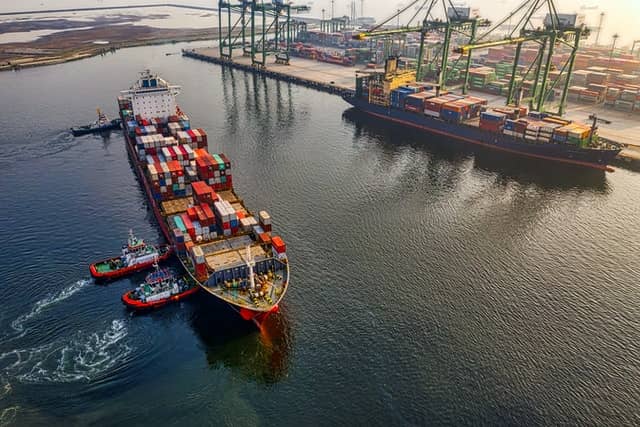
But it is widely used for shipping containers via ocean freight.
Additionally, as mentioned earlier, the ICC recommends that FCA should be used in containerized shipments.
What Are Insurance Options in FCA?
The insurance of goods is the responsibility of the buyer according to the FCA Incoterms. As the seller is only responsible for making goods available at the agreed point of delivery, it is the buyer who bears everything after the delivery has been made.
Therefore, the insurance of goods right after the delivery at the named place is the responsibility of the buyer in FCA.
Final Words
The FCA Incoterms are very clear and easy to understand. We have tried our best to explain each of the shipping steps, responsibilities, and tips to make this process easier.
Choosing between Incoterms can be a tough call for any importer. The FCA is a kind of agreement that seems to be meant for experienced importers.
NicheSources is an expert in sourcing products from China. If you want to import products from China, ask for a free quote now.
